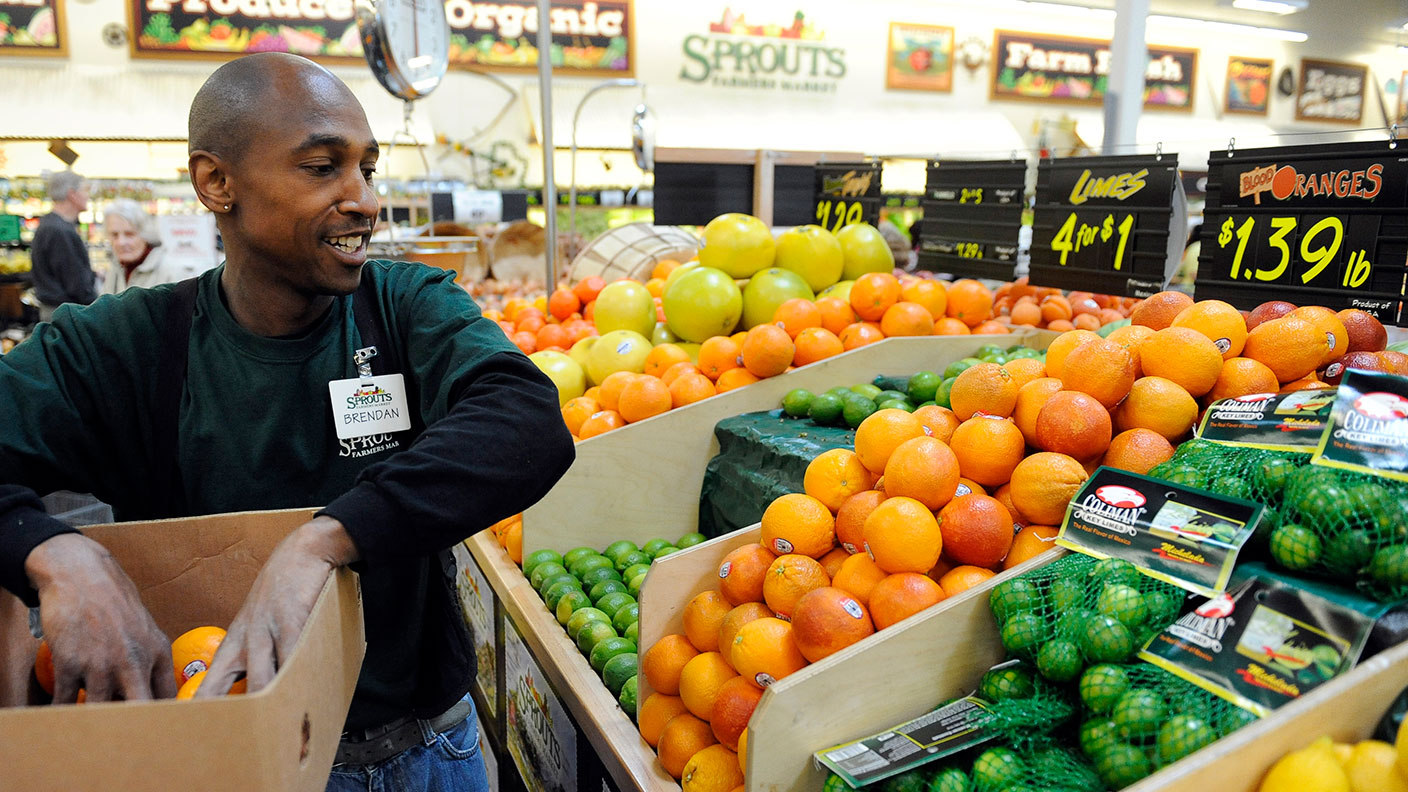Three stocks that should profit from demand for cleaner and greener living
A professional investor tells us where he’d put his money. This week: Chris Versace of the Cleaner Living ESG-S ETF, picks three fast-growing green stocks


Get the latest financial news, insights and expert analysis from our award-winning MoneyWeek team, to help you understand what really matters when it comes to your finances.
You are now subscribed
Your newsletter sign-up was successful
Want to add more newsletters?

Twice daily
MoneyWeek
Get the latest financial news, insights and expert analysis from our award-winning MoneyWeek team, to help you understand what really matters when it comes to your finances.

Four times a week
Look After My Bills
Sign up to our free money-saving newsletter, filled with the latest news and expert advice to help you find the best tips and deals for managing your bills. Start saving today!
We’ve seen many times in the past how structural shifts in consumer spending have a major effect on economies. Consumer spending accounts for 50%-60% of GDP, depending on the country, underlining the importance of the choices that consumers make about how they shop, bank, communicate, work, live and play.
We are seeing the latest shift unfold as consumers increasingly demand cleaner products that shun harmful ingredients, additives and chemicals in those products they put in and on their bodies, in their homes and workplaces, or into the environment. Fuelling this shift are growing concerns over obesity, diabetes, added sugar, genetically modified organisms (GMOs) and artificial ingredients in food, personal care items, and other products, and rising awareness about our collective environmental footprint.
Tematica Research’s Cleaner Living index, which is used by the Cleaner Living ESG-S ETF, captures this unfolding change in consumers’ preferences across multiple segments of the economy.
MoneyWeek
Subscribe to MoneyWeek today and get your first six magazine issues absolutely FREE

Sign up to Money Morning
Don't miss the latest investment and personal finances news, market analysis, plus money-saving tips with our free twice-daily newsletter
Don't miss the latest investment and personal finances news, market analysis, plus money-saving tips with our free twice-daily newsletter
Greener eating with Sprouts
While US retailers such as Walmart, Kroger and Target are converting shelf space to offer cleaner living products, over 68% of the products at Sprouts Farmers Market (Nasdaq: SFM) are already driven by attributes such as organic, non-GMO, paleo and keto. Over the last few years, its e-commerce penetration has more than quadrupled. Sprouts opened 12 new stores in 2021 and targets 15-20 new ones in 2022. Those efforts, along with consumer market-share gains, have Sprouts on track to deliver earnings per share (EPS) of $2.08 this year, growing to $2.30 in 2023 versus $1.25 in 2019.
Keeping electric vehicles running
The global electric vehicle (EV) market is expected to reach 34.8 million units by 2030, up from just 4.1 million in 2021. We see a growing demand for EV charging stations, both out and about as well as in the home. The monthly data from carmakers shows that the mix of EVs is growing. As that continues, the EV charging station pain-point will become increasingly clear.
In the US, there will be a spending boost for EV charging stations associated with the Biden administration’s infrastructure spending package, while Europe is aiming to become less dependent on Russian oil and gas. All of that bodes very well for ChargePoint Holdings (NYSE: CHPT), which has the largest network of charging stations across 14 countries in North America and Europe.
Making sure scrap metal isn’t wasted
Steel prices have risen considerably as a result of supply disruption caused by the Russia-Ukraine war. As the Omicron lockdowns in China fade and US infrastructure spending rises, demand for steel should climb. That could keep steel prices at or near current levels, which is positive for Schnitzer Steel Industries (Nasdaq: SCHN).
Schnitzer is a global leader in the metals recycling industry that collects, processes and recycles raw scrap metal and provides processed scrap metal to mills and foundries around the world. Roughly 95% of the company’s revenue is derived from the sale of recycled ferrous and non-ferrous metal products and finished steel products. Analysts’ consensus expectations are forecasting that Schnitzer will deliver EPS in the range of $7.58-$7.73 in 2022 and 2023, compared with $2.16 in 2019.
Get the latest financial news, insights and expert analysis from our award-winning MoneyWeek team, to help you understand what really matters when it comes to your finances.
Christopher Versace is index creator for the Digital Infrastructure and Connectivity UCITS ETF
-
 How to navigate the inheritance tax paperwork maze in nine clear steps
How to navigate the inheritance tax paperwork maze in nine clear stepsFamilies who cope best with inheritance tax (IHT) paperwork are those who plan ahead, say experts. We look at all documents you need to gather, regardless of whether you have an IHT bill to pay.
-
 Should you get financial advice when organising care for an elderly relative?
Should you get financial advice when organising care for an elderly relative?A tiny proportion of over 45s get help planning elderly relatives’ care – but is financial advice worth the cost?
-
 Three key winners from the AI boom and beyond
Three key winners from the AI boom and beyondJames Harries of the Trojan Global Income Fund picks three promising stocks that transcend the hype of the AI boom
-
 RTX Corporation is a strong player in a growth market
RTX Corporation is a strong player in a growth marketRTX Corporation’s order backlog means investors can look forward to years of rising profits
-
 Profit from MSCI – the backbone of finance
Profit from MSCI – the backbone of financeAs an index provider, MSCI is a key part of the global financial system. Its shares look cheap
-
 'AI is the real deal – it will change our world in more ways than we can imagine'
'AI is the real deal – it will change our world in more ways than we can imagine'Interview Rob Arnott of Research Affiliates talks to Andrew Van Sickle about the AI bubble, the impact of tariffs on inflation and the outlook for gold and China
-
 Should investors join the rush for venture-capital trusts?
Should investors join the rush for venture-capital trusts?Opinion Investors hoping to buy into venture-capital trusts before the end of the tax year may need to move quickly, says David Prosser
-
 Food and drinks giants seek an image makeover – here's what they're doing
Food and drinks giants seek an image makeover – here's what they're doingThe global food and drink industry is having to change pace to retain its famous appeal for defensive investors. Who will be the winners?
-
 Barings Emerging Europe trust bounces back from Russia woes
Barings Emerging Europe trust bounces back from Russia woesBarings Emerging Europe trust has added the Middle East and Africa to its mandate, delivering a strong recovery, says Max King
-
 How a dovish Federal Reserve could affect you
How a dovish Federal Reserve could affect youTrump’s pick for the US Federal Reserve is not so much of a yes-man as his rival, but interest rates will still come down quickly, says Cris Sholto Heaton
